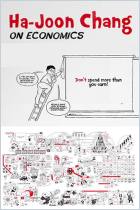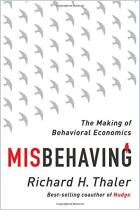Acesse a sua conta getAbstract para obter o resumo!

Acesse a sua conta getAbstract para obter o resumo!
Ha-Joon Chang
Economics
The User’s Guide
Bloomsbury Press, 2014
Sobre o que é?
As the 2008 financial crisis painfully demonstrated, “the economy is too important to be left to the professional economists alone.”
Recommendation
True to his subtitle, economist Ha-Joon Chang provides an accessible tutorial on economics and on several approaches to analyzing economic phenomena. His purpose is to offer a truer, more comprehensive picture of societal and individual economic consequences than you generally receive from the predominant neoclassical theory. Chang wants you, as a user of the economy, to learn how it works and how it affects you. Toward that goal, his primer facilitates various levels of study by suggesting reading sequences cherry-picked from the book: Skimming the chapter titles and their introductory pages will take you 10 minutes. If you have more time, dip into different sections and zip through the convenient summaries that dot the book. Warning: You may become so engrossed in Chang’s straightforward and engaging style that you end up reading the whole book. getAbstract recommends this refreshing manual to the lay reader who’d like a crash course in economics.
Summary
About the Author
Ha-Joon Chang teaches at Cambridge University. He wrote several other bestsellers, including 23 Things They Don’t Tell You About Capitalism.




















Comment on this summary